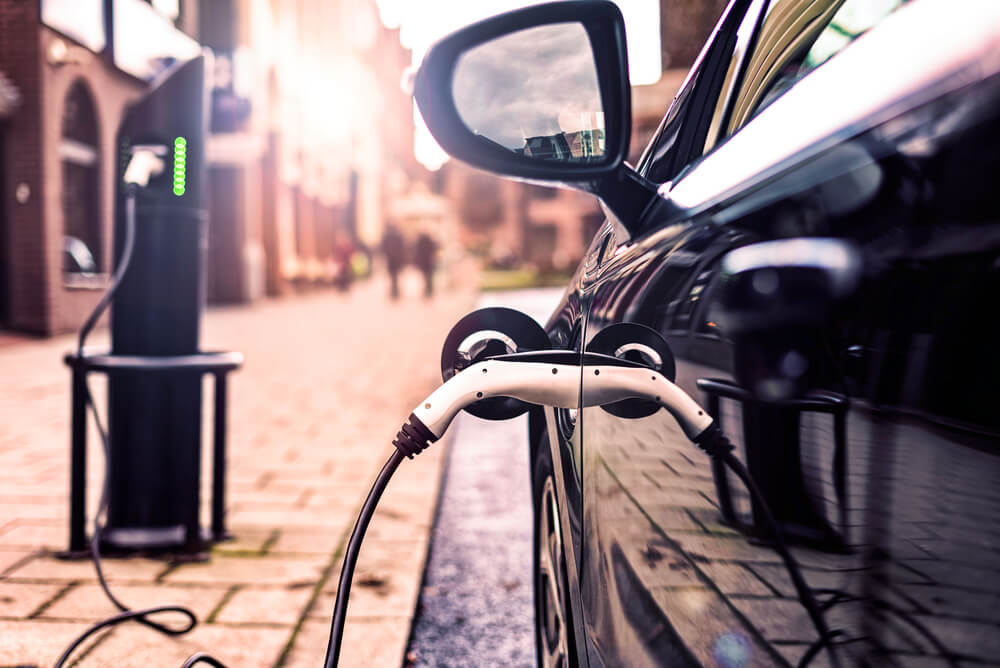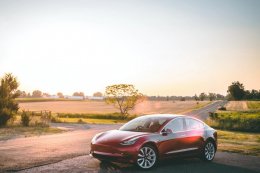
Australian motorists could save thousands of dollars on running costs and loan repayments by making their next car purchase electric, according to new research from Compare the Market.
The insurance comparison site crunched the numbers and found that EV owners in Sydney and Brisbane spent between $897 – $1,536 less a year on car running costs compared to petrol car owners.
The research compared the popular electric BYD Atto 3 with the petrol Toyota Corolla Cross small SUV across a range of regular expenses including fuel and charging costs, registration, servicing, insurance and loan repayments.
As a percentage, estimated running costs for the EV were between 5.4% – 9.3% lower than estimates for the petrol car included in this study.
Brisbane car cost comparison
| Toyota Corolla Cross Atmos 2WD (petrol) | BYD Atto 3 Standard Range (electric) | Difference between petrol and electric | |
| Five-year car loan (one year repayment total) | $12,039.81 | $11,349.51 | +$690.30 |
| Annual service (avg from first 5 visits) | $250.00 | $276.80 | -$26.80 |
| Fuel or charging | $1,944.69 | $585.01 | +$1,359.68 |
| Comprehensive insurance | $1,545.55 | $2,109.53 | -$563.99 |
| Annual registration + Compulsory Third Party cover | $793.10 | $716.05 | +$77.05 |
| Total cost per year | $16,573.15 | $15,036.90 | $1,536.25 |
* Fuel and charging costs calculated at an average of 16,881km/year in Brisbane
Sydney car cost comparison
| Toyota Corolla Cross Atmos 2WD (petrol) | BYD Atto 3 Standard Range (electric) | Difference between petrol and electric | |
| Five-year car loan (one year repayment total) | $12,025.92 | $11,382.99 | -$642.93 |
| Annual service (avg from first 5 visits) | $250.00 | $276.80 | +$26.80 |
| Fuel or charging | $1,628.01 | $568.02 | -$1,059.99 |
| Comprehensive insurance | $1,884.03 | $2,475.56 | +$591.54 |
| Annual registration | $434.00 | $621.00 | +$187.00 |
| CTP Greenslip | $510.99 | $510.99 | |
| Total cost per year | $16,732.94 | $15,835.36 | $897.58 |
*Fuel and charging costs calculated at an average of 14,132km/year in Sydney
Compare the Market’s economic director, David Koch, said the arrival of cheaper models meant owning an EV was now a more cost-effective choice.
“If you’re tossing between a petrol, hybrid, or electric vehicle for the next family car, our research shows that EVs are not only the greener choice, but the more economical option too,” Mr Koch said.
“There’s a misconception that EVs are more expensive to run. While this may be true in some aspects, such as comprehensive car insurance costs, significant savings in fuel and loan repayments do more than offset these expenses.”
“The team at Compare the Market found that regular drivers could save over $1,000 just on fuel annually when they charge their EVs at home overnight.”
The next big area for saving was on car loans. Even with a slightly higher drive-away purchase price for the electric BYD – just less than $2,000 more than the petrol-powered Toyota – loan repayments on the Atto 3 turned out to be cheaper due to the discounted rates available for green loans.
“Lenders are rewarding customers who make greener choices,” Mr Koch said. “We found the difference between regular rates and ‘green rates’ could be up to 2.47% – depending on the cost of your car that could mean hundreds of dollars a year.”
Despite savings across most regular expenses, EVs remain more expensive to insure because they use different technology and usually require specialist expertise for repairs.
The Compare the Market experts found a $563 difference between average comprehensive cover costs in Brisbane and a $591 gap between average costs in Sydney.
Mr Koch said he expected EV insurance costs to reduce in future, but insurers could do more to encourage the uptake in the meantime.
“If we really want to see more electric vehicles embraced in the years ahead, we need governments and companies to introduce further policies that makes them the preferred option,” Mr Koch.
“Just like banks and lenders have started offering green loans, it would be great to see insurers adopt some green discounts for electric car premiums.
“In the meantime, the best way to ensure you’re getting a good deal is to compare. No matter if it’s the fuel that you put in your car or the electricity plan you’re on to charge your EV, there are options out there. Don’t park yourself into higher prices.”
-ENDS-
For interviews and more information, please contact:
Noémi Hadnagy | m: 0433 377 252 | e: [email protected]
Compare the Market is a comparison service that takes the hard work out of shopping around. We make it Simples for Australians to quickly and easily compare and buy insurance, energy, and home loans products from a range of providers. Our easy-to-use comparison tool helps you look for a range of products that may suit your needs and benefit your back pocket.
Disclaimer/Methodology
Car loan
An average rate for a car loan for petrol, hybrid, and EV cars was calculated based on comparison and representative rates from Westpac, CommBank, ANZ, RACQ, and NRMA. This average was then used to calculate the yearly cost of repayment on a 5-year term loan. The cost of each make and model was based on the driveaway prices of each car in 2000, NSW, or 4000, QLD. Prices were calculated as of 10 April 2024 and are subject to change.
EV charging costs
Costs to charge the electric vehicle were based on the claimed energy consumption of the electric vehicle in conjunction with the stated average distance travelled by a car in each state according to Compare the Market car insurance comparison service data. The cost of the tariff was calculated according to the median home overnight off-peak tariff on a time-of-use plan in Sydney (2000) and Brisbane City (4000) (middle of cheapest and most expensive plan), according to Energy Made Easy. Energy running costs are based on the manufacturer’s consumption claims, which will likely vary in real-world driving. Calculations were made on 8 April 2024 and are subject to change.
Fuel
The cost of fuel has been calculated at $1.92/L, as indicated by the average cost of unleaded 91 for the 12 months to the end of March 2024. The average distance travelled was calculated based on Compare the Market data from the car insurance comparison service relevant to each state, in conjunction with the claimed fuel consumption for each model of car. Fuel running costs are based on the manufacturer’s consumption claims, which will likely vary in real-world driving.
Annual servicing costs
The average cost of annual service was calculated based on the average first capped-price services from each car manufacturer. Prices listed on each manufacturer’s website are correct as of 8 April 2024 and are subject to change.
Comprehensive car insurance
The average cost of comprehensive car insurance has been calculated from policies available from Compare the Market’s car insurance comparison service for each different make and model of car. All quotes generated were for a 30-year-old woman living in either 2000, NSW or 4000, QLD, who owns her own home, does not have another car and is employed full-time. All quotes generated for the different model cars were of a 2024 make, with no current insurer, white in colour, which is garaged at the stated address and has a 30-year over and driver restriction on the policy. The car has no finance, no damage, no factory options, no extra safety features, no modifications and is estimated to drive either 14,132km/year in Sydney or 16,881km/year in Brisbane. The car will be used only for private use or commuting to work only. All quotes generated are valid as of 8 April 2024 and are subject to change.
Registration (NSW only)
The cost of annual registration for the vehicles based in New South Wales was calculated on the Service NSW website based on the tare weight of each vehicle for private use. Calculation of the registration was done on 8 April 2024 and is subject to change.
Registration and Compulsory Third-Party Insurance (QLD only)
The cost of annual registration and CTP was calculated using the Queensland Department of Transport and Main Roads website for each vehicle for private use. Calculations of the registration and CTP were done on 8 April 2024 and are subject to change.
Green slips (NSW only)
The cost of annual green slips for vehicles based in New South Wales was calculated on the Greenslips.com.au website. The average of all green slip quotes was used for each vehicle type. Quotes generated were based on a 30-year-old female living in 2000, NSW, using each vehicle up to 15,000km per year and only for private use. Calculation of the green slips was done on 8 April 2024 and is subject to change.








